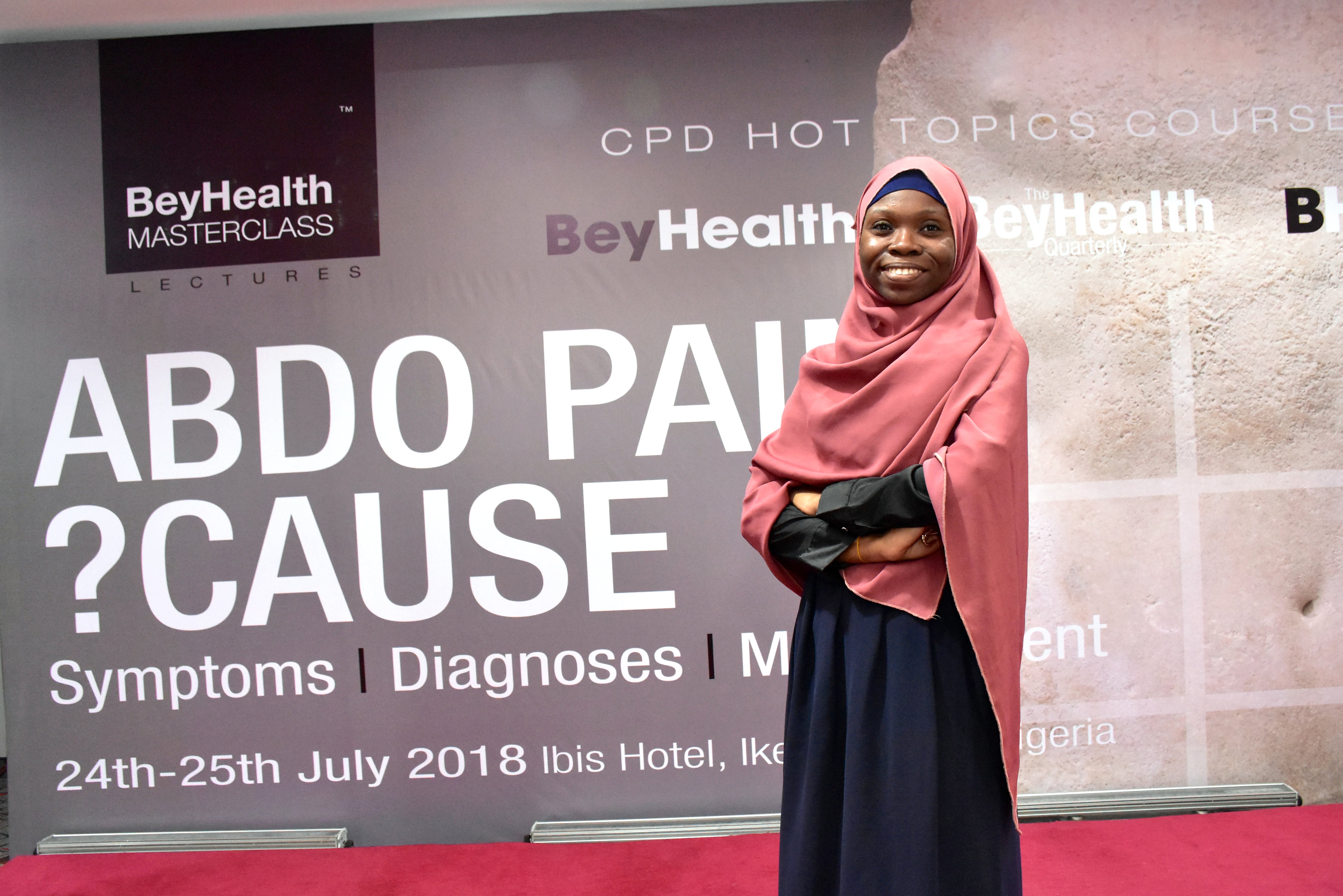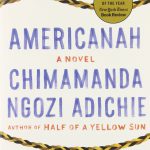The dusk of Nigeria’s military era sees a fiery teenage girl called Ifemelu (perhaps a play on the word, “female”) whose significant figures in life were a mother overly absorbed in her spirituality, a father failing at providing stability for his family and a lover with big dreams. She goes to live with an aunt whose newly enhanced social status is the direct benefit of an amorous relationship with an influential army General. The sudden mysterious death of the country’s military dictator has drastic consequences for Ifemelu’s fortunes. Aunty Uju
bears a son, Dike and both are sent by the General, to live in the US. Ifemelu joins them soon afterwards. There she struggles through college, devising various ways and means of survival. Some of these methods test her sense of dignity and self-worth, bringing her within intense proximity of the question of race and forcing her to confront society’s perception of her identity as a black-African female immigrant in the middle-class white American
suburb of Princeton. Back home, the only form of “othering” Ifemelu faced had been that of social class, not colour. Her experiences culminate in a successful blogging career focused almost entirely on the subject of race.
Ifemelu’s boyfriend, Obinze does not quite make it to his El Dorado! Stuck in London, he fares much worse in his ambitions than Ifemelu. Obinze manages to find work as a toilet cleaner. His feelings about the often dehumanising nature of his status as an illegal immigrant are captured most vividly in the section of the book where one day, he arrives at work to find a mound of faeces on the toilet floor.
Immigration has long been an issue of intense international controversy, more especially in European countries over the last two decades. Amongst many other themes, Americanah shines a light on the global migrant crisis. Many young Nigerians, not unlike Obinze and Ifemelu, have made the crossing, first across the Sahara and then through the Mediterranean in dire environmental conditions (often via organised human trafficking rings) as they journey endlessly in search of the proverbial Golden Fleece.
Many of these dreams have been stranded in staging posts such as Libya and subjected to the horrors of extortion, modern slavery, organ harvesting and forced prostitution Some have moved on and been “accepted”, in countries such as Spain, Italy, Germany and the United Kingdom. Many, however, have been repatriated and returned home, penniless, abused, depressed and filled with anger and regret.
Ifemelu works as a nanny for a white suburban family, is exploited by a white tennis coach, attends college in a predominantly white town and finally starts a relationship with Curt, a white male from whom she later disengages before starting to date Blaine, an intellectual African American with whom she soon discovers she has not all things in common. However, in neither of these relationships does Ifemelu find the reassuring sense of fulfilled familiarity that she had come to take for granted with Obinze, her first love.
Through her blog, Ifemelu finds an outlet for her frustrations concerning race and social acceptance in a foreign land, and yet she knows she has fared much better than many of her contemporaries back home in Nigeria. She finds the feeling of not quite belonging, coupled with her observation of young Nigerians returning from the diaspora to lead successful careers in Nigeria quite unsettling and decides eventually to return home.
Obinze, on the other hand, has had a much rougher experience in his time in England and had made the decision to return earlier. He becomes an established businessman, rubbing shoulders with politicians and captains of
industry. However, he finds that his marriage lacks the spark he had previously enjoyed with Ifemelu. The distance had taken its toll on their relationship and poor communication predictably proved inadequate in sustaining it.
Though less educated than she was, he now has a higher social standing in the fastgrowing economy of a newly re-democratised Nigeria. Deep down, he is disillusioned by the failure of his newly-acquired wealth to accord him a certain deeply-desired sense of joy and happiness. Kosi, a former beauty queen, is the quintessential trophy wife who possesses everything a woman could want except the love of her husband. Beneath the parties, fine jewellery and affluence-enabled beauty, she leads quite an empty, unhappy life.
Ifemelu and Obinze rekindle their youth in a secret love affair. Just as we are left entirely in the dark concerning the fate of Kainene, twin sister to Olanna in Half of a Yellow Sun, Americanah ends in the classic open-ended Chimamandan fashion. We are left to wonder how Obinze and Ifemelu continue their lives together. Does he divorce Kosi and make Ifemelu the wife of his dreams or do they keep up appearances and continue to conceal their clandestine love affair?
In this book, Adichie highlights the many ways in which culture and socioeconomic differences influence the experiences, prospects and aspirations of individuals on a global scale. The sociological issues highlighted
as a result of the interactions described in this book are the same as raised in all arguments concerning (sociocultural) determinants of access to health and social care.
Adichie highlights the myriad ways in which cultural and socioeconomic differences influence the experiences, prospects and aspirations of individuals on a global scale
Although heightened by the obvious racial and cultural differences brought into focus by issues such as immigration, these differences in socioeconomic prospects are apparent within individual communities all over the world.
The sense of oppression that prompted Ifemelu’s emigration from Nigeria is rooted in the austerity of her childhood and the associated social dysfunction that followed these difficulties. In this respect, she is representative of successive generations of Africans, young and old, who have embarked upon the existential and life-transforming odyssey of journeying away from their roots.
The same can be said for the experiences of socioeconomically disempowered white (and non-Caucasian) citizens of many European nations. One of the duties of a responsible society is to organise its resources for the optimum benefit of its citizens and to enhance the prosperity of its communities in such a way as to guarantee the entitlements of good health, access to essential resources, economic prosperity and overall social wellbeing
The United Nations (UN) Human Development Index (HDI) considers three essential elements– long and healthy life, access to knowledge and a decent standard of living as fundamental criteria for assessing the development of a
country (and prosperity of its people). It is indeed a truism that nations with a high HD index tend, on the whole, to enjoy the corresponding benefits of economic prosperity, good population health and higher than average life expectancy.
It is indeed the case that migration from one environment to another does, to a considerable extent, involve the transfer of many of the advantages of the more prosperous society to the benefit of the “visiting” individual.
Citizenship, of course, is a concept based on the principle of individual contribution and therefore, the corresponding right to derive benefits. The feelings of suspicion and almost inevitable hostility arising from the subject of
migration may be a direct result of one or more of a range of heartfelt viewpoints.
Ensuring that individual citizens are wellcatered-for is an essential and fundamental step towards halting the individual and societal challenges posed by immigration worldwide. Perhaps a failure of these arrangements in certain parts of the world is responsible for the decades-long pursuit of the oft-elusive Golden Fleece, a prize on occasion sighted by many, but not without considerable pain, loss of innocence and struggle even amongst the strong and well-equipped of African society.Adieu, Ifemelu. Chapeau indeed
read moreDisclosure forms provided by the author are available at NEJM.org.
Editor’s note:
Author Affiliations
Dr Mariam Toye graduated from the College of Medicine of the University of Lagos in 2016. She currently works as a junior doctor in a busy Lagos hospital. Mariam has a keen interest in social media and technology, the literary arts, social enterprise and global health issues.
Supplementary Material
| Disclosure Forms | 83KB |
Add your Comment
Add your Comment
Leave a Reply
You must be logged in to post a comment.
BHQJ 2018 ; 001:34-36
Related Article 
Medical Negligence & the Law5th May 2018 . Atrogenic harm is a matter of significant concern in Nigeria admin
Colorectal Cancer Overview5th May 2018 . [dkpdf-columns columns="3" equal-columns="false" gap="10"] Introduction Colorectal cancer is a major admin
Funding Healthcare Services in Nigeria – A conundrum of demand, policy and supply!5th May 2018 . [dkpdf-columns columns="3" equal-columns="false" gap="10"] Doctor, I happy say na you admin
5 “Provocations” of Healthcare Quality Reform6th May 2018 . [dkpdf-columns columns="3" equal-columns="false" gap="10"] n the four decades since he admin
Health Insurance, Activism & Urgent Change6th May 2018 . [dkpdf-columns columns="3" equal-columns="false" gap="10"] AR: Dr Soyinka, it’s wonderful to admin
Anne Olowu talks about her “Masterclass” experience6th May 2018 . [dkpdf-columns columns="3" equal-columns="false" gap="10"] As I suspect is the case admin
Stomach & Oesophageal Cancer in Nigeria6th May 2018 . [dkpdf-columns columns="3" equal-columns="false" gap="10"] Gastric and Oesophageal (Upper GI) cancers admin
Setting out the Stall!7th May 2018 . [dkpdf-columns columns="3" equal-columns="false" gap="10"] "The drawbacks of our false knowledge admin




Leave a Reply
You must be logged in to post a comment.